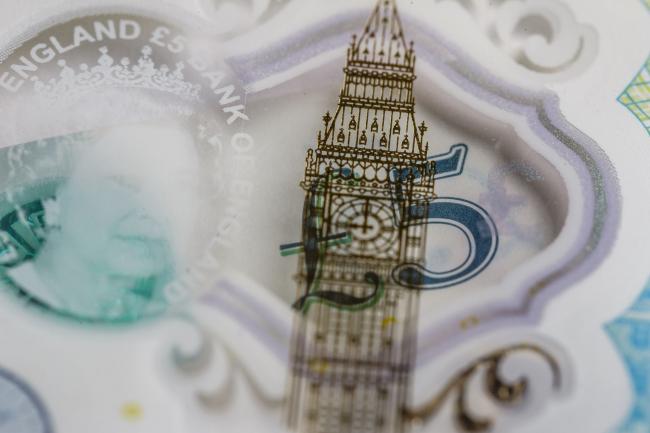(Bloomberg) -- The pound slumped more than 1% after U.K. Prime Minister Boris Johnson moved to change the law to guarantee the Brexit transition phase isn’t extended beyond the end of next year, reviving the threat of a no-deal split.
Sterling dropped by the most since July as traders reacted to the news. Johnson’s planned legislation will include legal text to prevent the government from delaying the day Britain stops being subject to European Union laws, even if no new trade terms have been secured in time, an official said.
“The honeymoon of the election is now over and the risks of a potential hard Brexit have been brought forward,” said Kyle Rodda, analyst at IG Markets Ltd. in Melbourne. “Johnson is taking an assertive stance on Brexit and although a hard divorce may still be in the margins for now, there are increasing risk premiums priced into the pound.”
The pound was 1.1% weaker for the day at $1.3186 as of 8:26 a.m. in London. The currency had climbed to as high as $1.3514 on Friday as the Conservative Party swept to victory in the U.K. general election, fueling optimism there would be a speedy resolution to the Brexit deadlock.
EU leaders have warned it’s highly unlikely that negotiators will be able to complete the kind of deal Johnson wants, which he’s modeled on Canada’s agreement with the EU, in the 11 months between Brexit day Jan. 31 and the December deadline. This sets up a fresh cliff-edge for a no-deal split with the EU at the end of 2020.
“In practice it would erode all the positives of a large Tory majority and bring us back to previous position of pound uncertainty rising rather than falling next year,” wrote Elsa Lignos, global head of currency strategy at Royal Bank of Canada, in a research note. “If passed, it would mean further pound downside that should be apparent by January.”
Still, the U.K. currency has already recovered significant ground since the election result. A Citigroup Inc (NYSE:C). index indicates that currency funds have almost completely unwound their bearish bets on sterling. Asset managers have also switched to a net long position position in the pound from a net short before the vote, data from the Commodity Futures Trading Commission showed.
Currency strategists at HSBC Holdings Plc (LON:HSBA) see the biggest surge in the pound since 2017 as only the start of the rally. Prime Minister Boris Johnson’s plans to boost spending should give the economy a shot in the arm and help the pound to $1.45 by the fourth quarter of 2020, the strategists said in a note dated Thursday.
